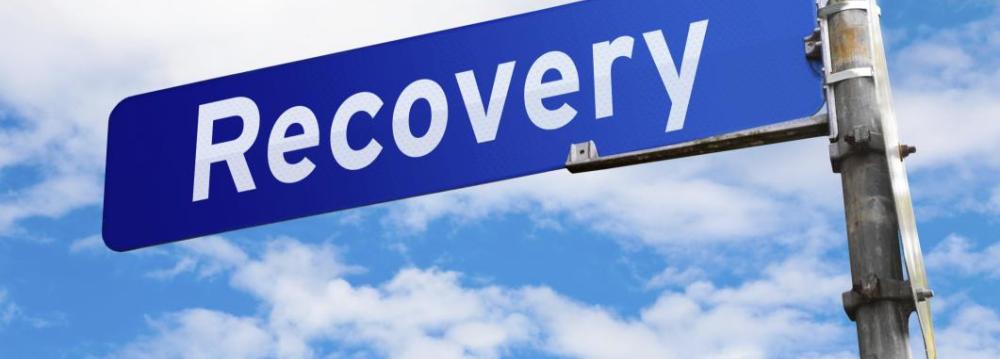Amid mounting concerns over the recession afflicting domestic industries and the accumulating stockpiles of companies listed in Tehran Stock Exchange, the government has recently shown signs of a policy shift.
Following the release of an open letter written by four Cabinet members to President Hassan Rouhani expressing serious economic concerns, the president said the government has already come prepared a package of measures to put the capital market in order and review the economic policies with an eye on growth.
Earlier this week, Financial Tribune’s sister newspaper Donya-e-Eqtesad revealed the content of the government’s economic package, which is said to be aimed at “restoring economic growth” and “tackling credit crunch”.
The package, whose drafting started early in August, includes policies in the three main categories of monetary, financial and business policies.
In the monetary sector, the government has highlighted interest rate management in accordance with inflation. Also, “reduction in legal deposit ratios in commercial banks”, “increasing capital for bank leasing” and “increasing exchange rate reserves in Export Development Bank of Iran” are other monetary policies included in the package.
In the financial sector, the government plans to develop financial tools through Murabaha bonds to provide firms with diverse financial options.
Also, granting subsidies to exporters and organizing industrial permits are policies aimed at improving the business environment.
The proper implementation of these policies, experts believe, could help boost growth in the current Iranian year rise to positive territory.
The package says “a sharp fall in oil prices” and “declining demand”, before sanctions over Iran’s nuclear energy program were imposed, had a huge impact on many sectors of the oil-reliant economy. This was further exacerbated after sanctions were implemented.
Over the past two years, however, the government has sought to bolster economic growth by adopting policies to tame galloping inflation, reducing uncertainty in the economic situation and removing hurdles in the way of doing business.
According to many official statistics, the government has been successful in strengthening the economy to a significant extent. However, recent economic shocks generated by a 50% fall in oil prices over the past months on the one hand and declining demand as a result of falling inflation on the other have stoked serious concerns among experts, policymakers and private sector businesses.
The widening gap between the inflation rate and equilibrium interest rate has also become an issue.
Although the administration’s control over rising monetary base and consumers’ expectations for lower prices, along with steady foreign exchange rates, in the past months have led to a considerable drop in inflation rate, interest rates never declined in line with inflation. Amid fierce competition to increase their deposits, banks have been keeping the interest rates high.
> New Approach
To tackle those issues, three major policymaking entities of the Central Bank of Iran, the Ministry of Economic Affairs and Finance, and Management and Planning Organization recently established a working group to adopt a new approach for devising economic policies.
These policies prevent CBI from arbitrary interest rate manipulations. Instead, the central bank will be connected to the interbank loaning market to provide a natural flow mechanism in interest rates in line with the inflation rate on the one hand and providing banks with the capital they are short of on the other.
Consequently, the CBI will play a more active role in the banking network. Providing interbank facilities, the CBI will also be able to increase its supervision and control on the financial market.
The second monetary solution will be to use a new legal deposit ratio mechanism. The CBI will be in charge of changing banks’ legal deposit ratio, which currently stands at 13%. The CBI will reduce the deposit ratio for certain banks selectively, based on their fiscal discipline.
Nonetheless, the CBI will have to observe prudence in changing deposit ratios as a 1% reduction in legal deposit ratio, according to many experts, will add 4% to liquidity, which would in turn hike inflation.
The other monetary policy is to raise the banks’ leasing capital which, many experts believe, is in correlation with demand. Besides reducing recession on the demand side, the policy is also aimed at facilitating cash flow in the market.
Also, increasing CBI’s deposits in the Export Development Bank of Iran to support exports is another policy considered in the package.
In fact, the package contains policies concerning the Ministry of Industries, Mining and Trade, and Management and Planning Organization.
The ministry has been required to ease permit issuance and ease of doing business in different sectors in line with prioritized macroeconomic requirements and supply-demand status.
The Management and Planning Organization has been asked to allocate subsidies to exports to stimulate the demand side. One way to promote demand and reach a higher growth rate without raising inflation, many experts believe, is to increase non-oil exports.
Furthermore, Murabaha bonds will be a way for manufacturers to raise capital. Manufacturers could sell the bonds to cover their raw material purchases and other production costs, and later pay an agreed-upon interest to the buyer.
When paying the interests, the package says, firms will be provided witrh tax incentives by the Economy Ministry.
According to Ali Tayyebnia, the minister of economic affairs and finance, President Rouhani will officially issue a decree for the relevant bodies to implement the package this week.


